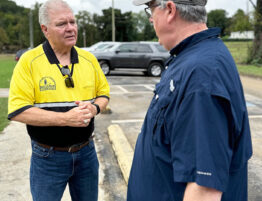
Compassion ministry is an attempt to follow the model of Jesus. Just as he met human need, we are called to meet human need. One of the most alarming passages in all of Scripture is the parable of the sheep and goats in Matthew 25:31-46. Jesus speaks of a day of separation based upon doing ministry “unto the least of these.”
If that parable doesn’t motivate a person to action, he needs his reading comprehension checked.
Where does one start to serve the underserved in compassion ministry,? With so many needs in society and around the world, what can one church or one Christian do?
Here are five foundational principles for launching a compassion ministry:
1. Determine your purpose
What are you trying to do? Feed everyone in town? Clothe everyone? Provide fresh water? Compassion ministries build bridges. By meeting human need, the gospel travels to the lost. Any organization can meet human need, but the Christian concept of compassion ministry is based on meeting needs for the purpose of sharing the gospel. If a Christian ministry gets too busy meeting physical need and cannot meet spiritual needs, it is time for that ministry to re-examine their purpose. You must establish why you are doing whatever you are doing. Don’t get caught up in doing social ministry. Anybody can do that. We need to meet needs so the gospel can be shared.
2. See the needs
The example Jesus set for us was he would see needs and be moved to compassion. You should receive some clarification on where to start as you continually ask questions like these:
— What needs do you continue to see?
— What needs are not being met by anyone else?
— What burdens your heart? What keeps you awake at night?
— How and where are people hurting?
3. Identify the resources
God has placed resources in your ministry. Resources may include facilities, money and people — especially people. God sends people to churches to equip the body for ministry. Henry Blackaby in Experiencing God reminds us to look to see who God is adding to our congregations as a means of seeing where God is at work and where we should join him. So, ask a few questions:
— Who has God added to our church recently?
— What gifts do they bring to the table?
— What talents, gifts, experiences, expertise, and interests do they and others in your church possess?
— What abilities are being underutilized in your church?
4. Start small
Great ministry often starts small. Pick out one ministry and do it well. Don’t worry if it seems like a small thing. God can take our small efforts and multiple them beyond our imagination. One man felt led to share bread to hungry people. He began with two tables of bread. Five years later, that ministry has grown to giving away around 4 million pounds of food annually. A church of 26 people felt called to feed hungry people. They started with a few groceries but now serve between 125 and 140 families a week.
5. Make yourself available
Whenever I visit the campus of Carson Newman University, I often hear their president, Randall O’Brien, say, “Whatever is the question, the answer is yes from Carson Newman.” He is committed to serving others as he serves at Carson Newman. Whatever God calls us to do, may our answer always be “Yes, Lord.”
Slow down. See human need. Ask God if he wants you to be involved in meeting the need. And if he does, then share his good news while you meet the need. Whatever the question, may you always say, “Yes.”
Joe Sorah is a Harvest Field Team Leader/Compassion Ministry Leader/Compassion Ministry Specialist with the Tennessee Baptist Convention. To connect with Joe about these and other ideas, email him at jsorah@tnbaptist.org.









Write a comment: